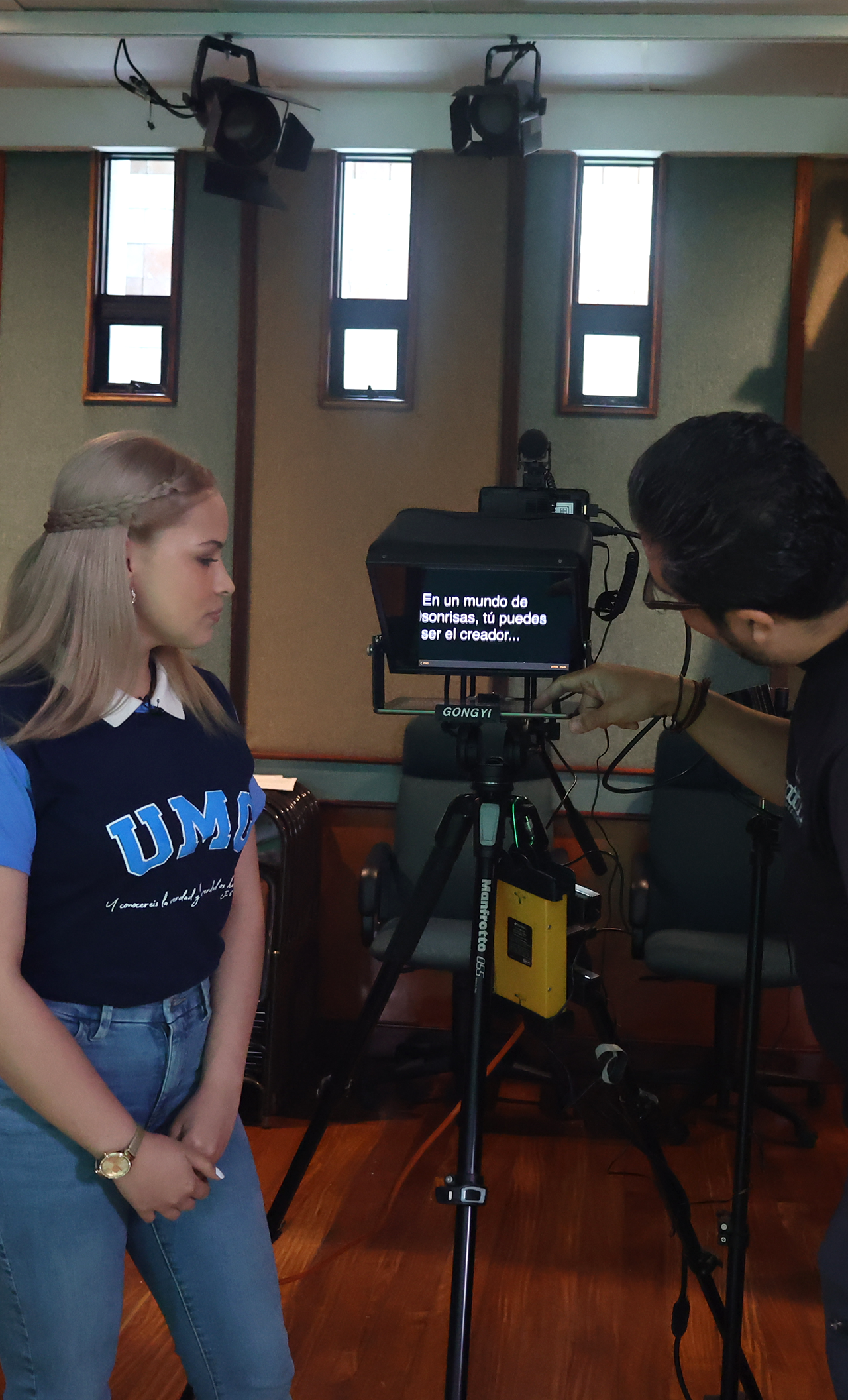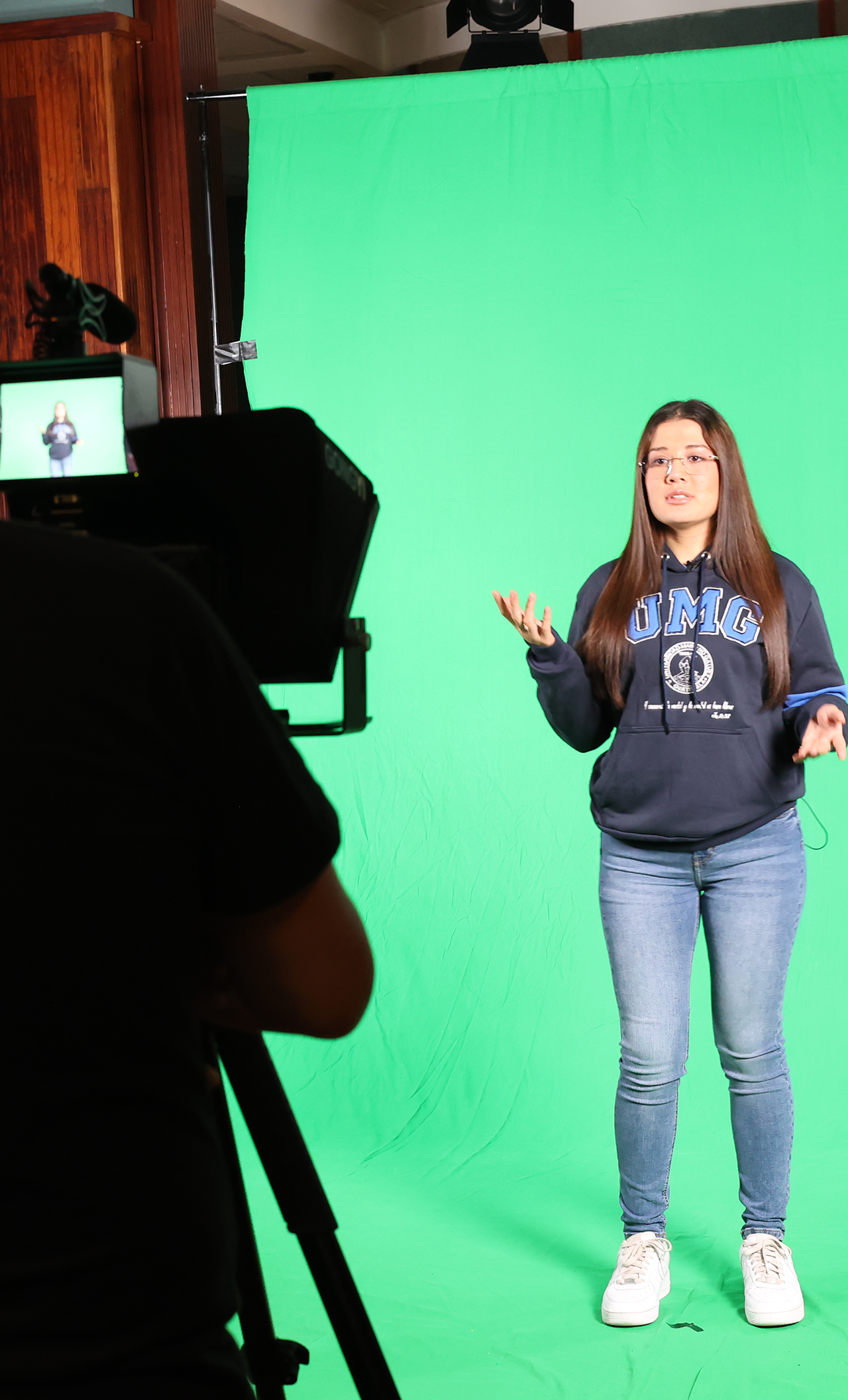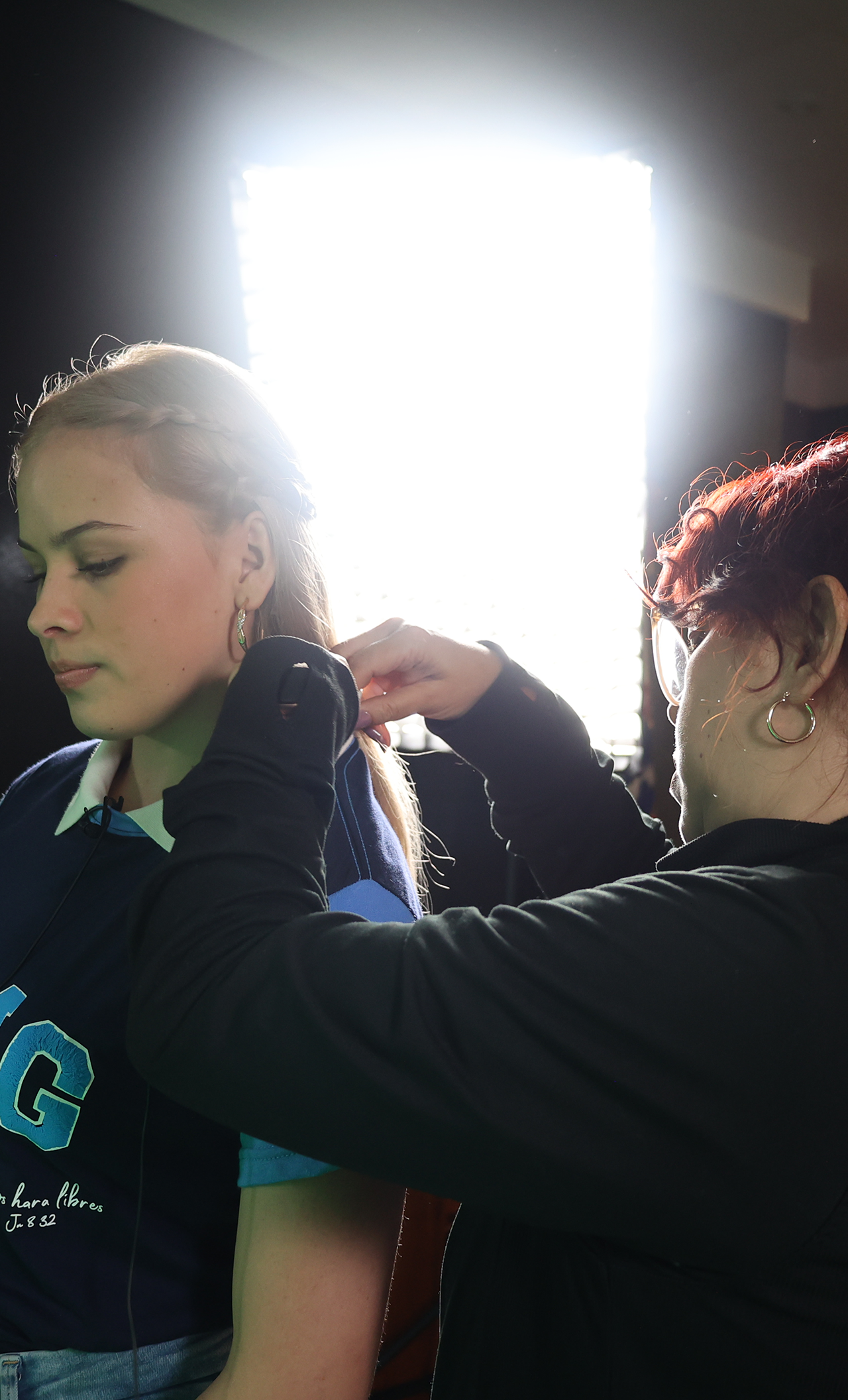
- Bachelor's Degree in
- Communication Sciences with an Emphasis on Journalism
- Degree to be obtained
- Bachelor's Degree in Communication Sciences with an Emphasis on Journalism
- Academic degree
- Bachelor's Degree
- Duration
- 4 years
- Modality
- In-person and virtual
- Schedule:
- Daily Afternoon y Saturday Morning Session
- Career description
-
Training professional journalists with values, as well as a high ethical and scientific sense to research, analyse, and direct advertising communication in different media, and formats, through the application of innovative advertising techniques and strategies that guarantee the effectiveness of their messages in relation to the target audience.
- What will you learn during the program?
-
The adquisition of essential skills and knowledge is offered to become a journalist.
You will learn about journalistic ethics, writing, research, multimedia content production and integrate internships in laboratories and at the UMG Radio station, which is equipped with the latest technologies.
Gallery
AdmissionProfile
The applicant to the Bachelor's Degree in Communication Sciences with Emphasis in Journalism must have an inclination for investigation, and critical analysis of social reality, showing interest in current events at the local, national, and international levels. It is essential to have clear writing and oral expression skills, as well as the ability to adapt to diverse environments and technological media.
Graduate'sProfile
Domain of researching, analyzing, interpreting, and producing with a high ethical spirit, the different forms by which the different mass media such as radio, television, newspapers and magazines broadcast interviews, reports, news, commentaries, editorials, documentaries, chronicles, among others.
Career Opportunities

Director, management consultant, researcher, strategic analyst, project planner and coordinator, director, of media and social communication companies. Publisher, reporter, editor, editorialist, correspondent, editor-in-chief, news editor, public relations officer.
Curriculum
| 1° Ciclo | GÉNEROS PERIODÍSTICOS Y MANEJO DE FUENTES DE INFORMACIÓN | HISTORIA DE GUATEMALA Y ANÁLISIS DE LA REALIDAD SOCIAL Y ECO | LOCUCIÓN, MODULACIÓN Y RESONANCIA | ORTOGRAFÍA Y REDACCIÓN | TEORÍA GENERAL DE LA COMUNICACIÓN |
|---|---|---|---|---|---|
| 2° Ciclo | DESARROLLO HUMANO Y PROFESIONAL | FOTOGRAFÍA PERIODÍSTICA | HISTORIA DEL PERIODISMO, RADIODIFUSIÓN Y TELEVISIÓN DE GUATE | REDACCIÓN PERIODÍSTICA | SEMIOLOGÍA |
| 3° Ciclo | INTRODUCCIÓN AL DISEÑO GRÁFICO Y HERRAMIENTAS DIGITALES | OPINIÓN PÚBLICA | REDACCIÓN RADIOFÓNICA Y TELEVISIVA (FORMATO DE GUION PROFESI | TÉCNICAS DE ESTUDIO E INVESTIGACIÓN | TEORÍA E HISTORIA DEL ARTE |
| 4° Ciclo | ANÁLISIS E INVESTIGACIÓN DE LOS MEDIOS | MANEJO DE LA CÁMARA DE VIDEO | METODOLOGÍA DE LA COMUNICACIÓN | PERIODISMO DIGITAL | PRODUCCIÓN DEL DISEÑO GRÁFICO PARA LA COMUNICACIÓN VISUAL |
| 5° Ciclo | GERENCIA DE MEDIOS DE COMUNICACIÓN | LEGISLACIÓN DE LOS MEDIOS DE COMUNICACIÓN SOCIAL | LITERATURA HISPANOAMERICANA | PERIODISMO INVESTIGATIVO | TALLER INTEGRADO: RADIO REVISTA |
| 6° Ciclo | ESTADÍSTICA | LITERATURA GUATEMALTECA | PSICOLOGÍA DE LA COMUNICACIÓN | RELACIONES PÚBLICAS | TALLER: DISCURSO Y TÉCNICAS PARA HABLAR EN PÚBLICO |
| 7° Ciclo | EPISTEMOLOGÍA DE LA COMUNICACIÓN | ÉTICA Y DEONTOLOGÍA DE LA COMUNICACIÓN | PRÁCTICA PERIODÍSTICA | SOCIOLOGÍA Y ANTROPOLOGÍA GENERAL | TRABAJO DE ANTEPROYECTO DE GRADUACIÓN I |
| 8° Ciclo | COMUNICACIÓN ETNOLINGÜÍSTICA | COMUNICACIÓN PARA EL DESARROLLO | ECOLOGÍA DE LA COMUNICACIÓN | SEMINARIO: ESTRATEGIAS DE COMUNICACIÓN EN LA GESTIÓN DE PROY | TRABAJO DE INVESTIGACIÓN PARA GRADUACIÓN II, PRESENTACIÓN FI |


